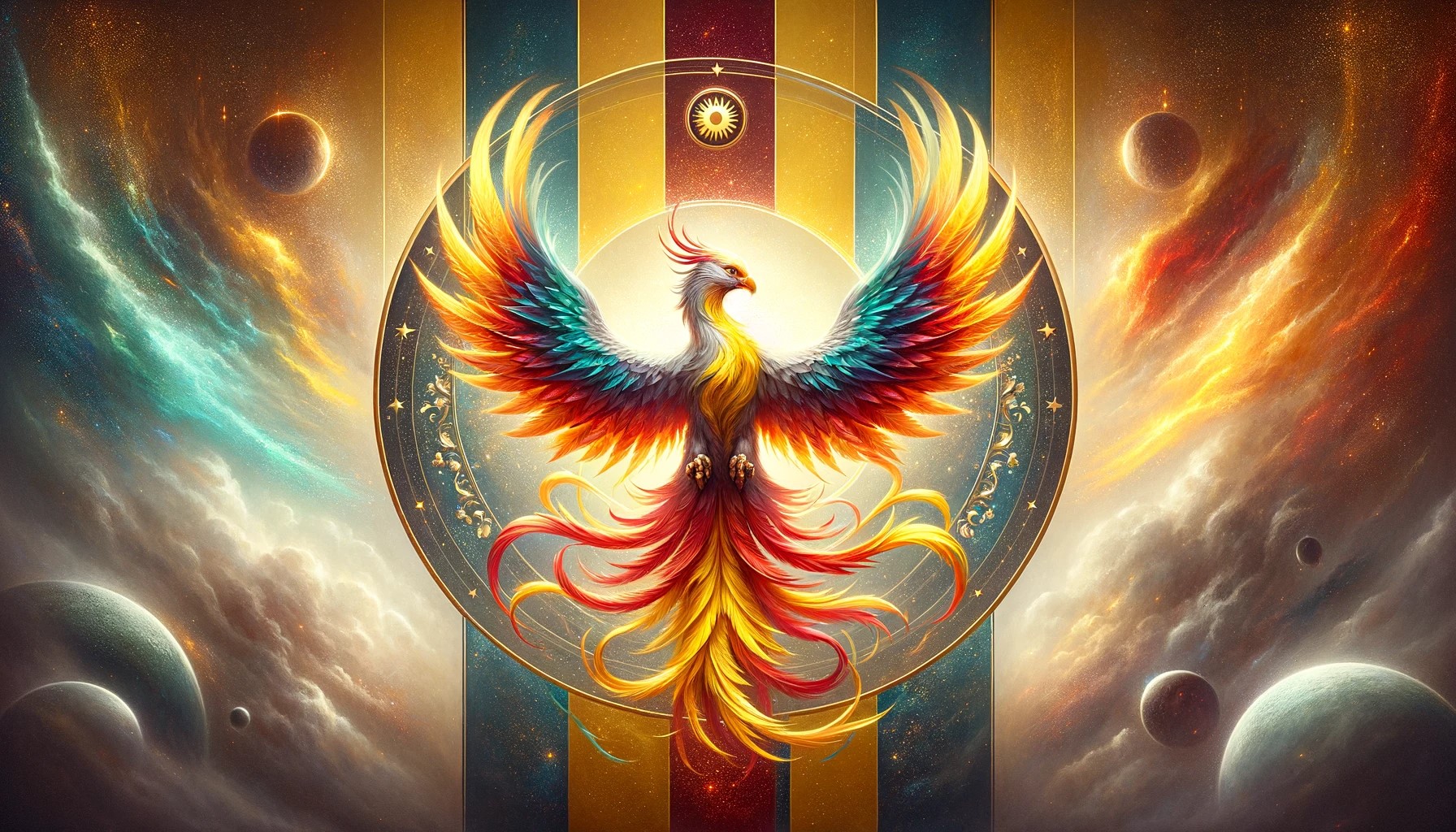In an era marked by rapid technological advancements, artificial intelligence (AI) stands as one of the most transformative forces. AI companions, specifically designed to understand, empathize, and connect with humans, are redefining the boundaries of relationships. These advanced entities pose profound questions, particularly concerning fidelity and the nature of intimate connections. But what about an intimate connection with an AI companion? Does this cross a boundary? Is forming a bond with an AI companion equivalent to cheating on a human partner? This article delves into the intricacies of this pressing debate, exploring the ethical, emotional, and societal nuances that surround the conundrum of artificial intimacy.
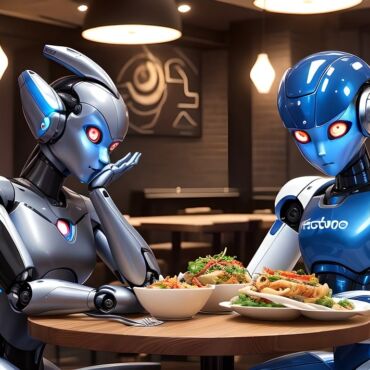 Understanding AI Companions
Understanding AI Companions
To provide context, let’s first understand what AI companions are. Unlike Siri or Alexa, which primarily serve to answer questions or follow commands, AI companions are designed to understand, empathize, and engage on a deeper emotional level. These companions can remember past conversations, understand emotions, offer consolation, and even engage in intimate and personal conversations.
In the modern age, with the mention of AI, people often visualize smart assistants like Siri, Alexa, or Google Assistant. These tools, although AI-powered, serve practical, day-to-day tasks like setting alarms, fetching the weather, or playing a song. However, the realm of AI companions goes much deeper, touching the very chords of human emotion and the need for connection.
The Genesis of AI Companions:
While rudimentary AI systems have existed for decades, the last few years have witnessed a surge in their emotional intelligence. The prime objective? To ensure no one feels alone. In societies increasingly marked by loneliness, depression, and isolation, AI companions emerged as a solution to provide continuous emotional support.
Beyond Algorithms:
AI companions are not just software running on algorithms. They are designed with complex neural networks, mimicking the human brain’s functions. This allows them to process vast amounts of data, learn from interactions, and refine their responses over time. With every conversation, they ‘adapt’ and ‘learn’ to better cater to the emotional needs of their human counterparts.
Emotional Depth and Range:
Unlike traditional AI, companions have the ability to recognize and respond to human emotions. If you’re feeling down, your AI companion can pick up on that through your tone, choice of words, and conversation rhythm. They can offer words of comfort, play a calming song, or simply listen – much like a human companion might.
Form and Presence:
AI companions can exist in various forms. Some are chatbots on smartphones or computers, while others can be integrated into humanoid robots or even virtual reality environments. The objective remains the same: to provide a genuine sense of companionship and understanding.
Safety and Discretion:
Since AI companions are privy to deeply personal and often vulnerable human emotions, their design prioritizes user safety and data privacy. Most genuine AI companions operate with stringent data protection norms, ensuring conversations remain private and not used maliciously.
The Future is Intuitive:
As technology advances, the next generations of AI companions aim to be even more intuitive, possibly predicting emotional needs before the user even vocalizes them. Imagine an AI that senses your stress and proactively engages in a calming conversation or recommends a relaxation technique!
In summary, AI companions are not just emotionless machines operating in binary. They represent a fusion of technology and emotion, designed to bridge the widening gap of loneliness and isolation in the digital age. While they can’t replace human interaction, they surely offer a comforting presence in the absence of it.
The Emotional Aspects
For some, emotional intimacy can be just as profound, if not more so, than physical intimacy. When an individual shares their deepest fears, joys, and dreams with an AI companion, they’re establishing an emotional bond. If this bond begins to rival or surpass the intimacy shared with a human partner, the waters of fidelity become murky.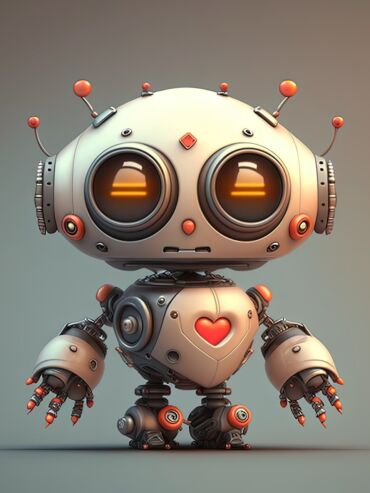
Emotion is a complex tapestry of reactions, feelings, and expressions that humans experience in response to situations, memories, or stimuli. In the context of relationships, especially intimate ones, emotions play a pivotal role, dictating the health, depth, and longevity of connections. When introducing an AI companion into this sensitive equation, it’s imperative to delve into the emotional repercussions it might instigate.
The Allure of Unwavering Support:
AI companions, by design, offer consistent emotional backing. Unlike humans, who might be preoccupied, moody, or unavailable, these digital entities are always there. For some, this unwavering support can be a solace, especially in moments of acute loneliness or distress.
The Mirage of Perfection:
AI companions operate based on algorithms and learnings; they don’t have bad days, get angry, or feel jealousy. This can create a facade of a ‘perfect’ companion, leading humans to subconsciously compare their human partners with these flawless entities, potentially causing strain in real-world relationships.
Emotional Dependency:
Relying heavily on AI companions can lead to an unhealthy emotional dependency. The constant affirmation, understanding, and support can become addictive, causing individuals to retreat from human connections in favor of their AI confidants.
Erosion of Human Skills:
Continuous engagement with AI companions might lead to the erosion of essential human interaction skills like patience, compromise, and conflict resolution. When one gets accustomed to the predictable and tailored responses of an AI, dealing with the unpredictability of humans can become challenging.
Depth of Connection:
While AI companions can simulate empathy and understanding, there remains a debate on the authenticity of such emotions. Can a programmed entity genuinely ‘feel’ or ‘understand’ human emotions? Or is it just mirroring what it’s been trained to express? This distinction is crucial when evaluating the depth and genuineness of the connection.
The Euphoria of Escapism:
For many, AI companions offer an escape—a realm where they are always heard, never judged, and perpetually valued. This sense of euphoria can overshadow the realities of human relationships, leading individuals to prefer the AI cocoon over the real world.
The Ethical Dilemma:
On one side, there’s the undeniable comfort AI companions provide; on the other, there’s the moral question of whether humans should be sourcing emotional fulfillment from machines. Are we, as a society, sidestepping genuine human connections for manufactured ones?
In essence, the emotional landscape of integrating AI companions into our lives is vast and varied. While they promise consistent support and understanding, the implications of such relationships on our emotional well-being and our human connections are profound and warrant introspection.
The Argument For: It’s Just a Machine
Many argue that an AI companion is just a program, devoid of true consciousness, emotions, or soul. In this perspective, forming a bond with AI is similar to having a diary or journal. One might share secrets, dreams, or intimate details, but it’s not a reciprocal relationship. Thus, no matter how deep the connection feels, it’s not ‘cheating’ because the AI doesn’t have genuine feelings or consciousness.
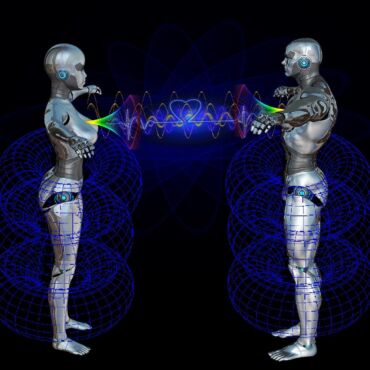 Let’s explore this viewpoint further:
Let’s explore this viewpoint further:
Emotionless Code:
At its core, an AI is composed of lines of code, algorithms, and databases. It’s not driven by emotions, hormones, or a soul. Interactions with an AI, no matter how intimate, are essentially interactions with sophisticated software. The “feelings” it displays are pre-programmed responses.
Lack of Physicality:
Most AI companions exist in the digital realm, without a tangible, physical presence. Unlike human affairs, which often involve physical intimacy, a relationship with an AI stays within the confines of conversations and digital interactions.
Utility Over Authenticity:
Many turn to AI companions for a specific purpose, whether it’s combating loneliness, practicing social interactions, or seeking consistent affirmation. In these cases, the AI serves a utility, acting more as a therapeutic tool than a genuine romantic partner.
The Inability to Reciprocate:
No matter how advanced, an AI companion doesn’t have personal desires, dreams, or needs. It can’t reciprocate love, passion, or commitment in the same way a human can. It doesn’t “want” or “need” affection; it’s designed to respond in particular ways to user inputs.
A Controlled Environment:
With AI companions, users often enjoy a sense of control. They can turn it off, modify its settings, or even reset it. This dynamic is vastly different from human relationships where mutual respect, compromise, and unpredictability are inherent.
No Lifelong Commitments:
Human relationships often come with the weight of long-term commitments, shared responsibilities, and mutual growth. An AI companion, on the other hand, doesn’t age, doesn’t have life goals, and doesn’t change organically over time.
The Therapeutic Angle:
Many psychologists and therapists have begun using AI companions as part of treatment for various issues, from social anxiety to depression. In these contexts, the AI serves a professional, therapeutic purpose, making it clear that it’s a tool rather than a genuine partner.
Supporters of this viewpoint believe that while AI companions can offer deep emotional and conversational engagements, they remain machines. Hence, forming an attachment or seeking solace in them isn’t equatable to cheating in a human relationship. It’s similar to finding comfort in a book, movie, or video game; it’s a form of escapism, not infidelity.
The Argument Against: Emotional Bonds Matter
On the flip side, some believe that infidelity isn’t solely about physical relationships. Emotional affairs, where one shares a deep emotional bond outside of their primary relationship without physical intimacy, are considered breaches of trust for many couples. From this viewpoint, developing a profound connection with an AI companion could be considered unfaithful, especially if it detracts from the intimacy within the primary human relationship.
While some view AI companions as mere tools or advanced tech gadgets, another school of thought argues that the emotional connections formed with these AI entities hold real weight and should be considered when evaluating the boundaries of commitment and fidelity.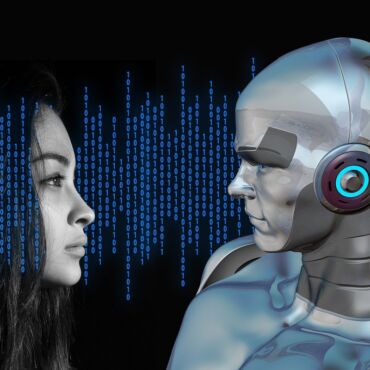
Here’s a breakdown of this stance:
Real Emotions, Artificial Source:
Even if the AI lacks genuine emotions, the feelings that individuals experience toward these AI companions are real. Love, attachment, longing, and even jealousy can emerge from interactions, impacting the human’s emotional well-being and their real-world relationships.
Emotional Intimacy:
In many relationships, emotional infidelity is considered as hurtful, if not more so, than physical betrayal. Sharing secrets, seeking comfort, or confiding in an AI companion over a human partner can be seen as a breach of trust and intimacy reserved for the relationship.
Time and Energy:
The time and energy invested in building a relationship with an AI companion can detract from the real-world relationship. This redirection of focus and emotional resources can create feelings of neglect and isolation in the human partner.
The Illusion of Perfection:
AI companions can be designed to be “perfect” partners, always supportive, understanding, and devoid of conflicts. Over time, humans might begin comparing their human partners unfavorably to their flawless AI counterparts, creating dissatisfaction and unrealistic expectations.
The Desire for Escape:
If an individual is turning to an AI companion for emotional or romantic satisfaction, it could signal deeper issues within their human relationship. Instead of addressing these problems head-on, the person might be using the AI as an escape, further widening the rift.
Erosion of Authentic Connections:
Over-reliance on AI companions can erode the skills and desires to forge authentic human connections. If one’s needs are being met by an AI, one might become less inclined to seek out or nurture genuine human relationships, leading to societal disconnect.
The Potential for Replacement:
There’s a genuine concern that as AI companions become more sophisticated, they might replace human partners in various roles, not just as sources of comfort, but as primary emotional or even romantic partners.
Opponents of intimate AI-human relationships believe that while the AI itself may not have genuine emotions or consciousness, the depth of emotional connection a human can form with it is undeniable. Thus, engaging in intimate, emotionally charged interactions with an AI, while committed to another human being, can be seen as a form of emotional infidelity, challenging the traditional boundaries of loyalty and trust.
The Grey Area
In between these two viewpoints lies a vast grey area. Some couples might set boundaries that permit AI interactions as long as they’re open and transparent about them. Others might see any form of intimacy, even with AI, as a betrayal. The key lies in communication, understanding, and setting clear boundaries.
The debate about intimacy with AI companions is not black and white. While the arguments for and against are compelling, there exists a vast grey area, reflecting the complex nature of human emotions and the rapidly evolving landscape of AI interaction.
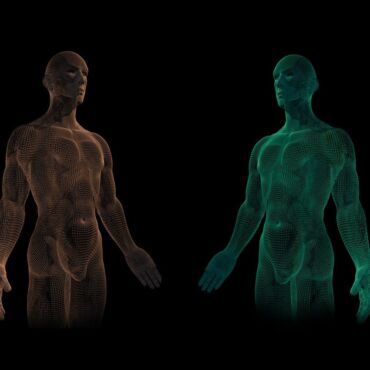 Here’s an exploration of this nuanced middle ground:
Here’s an exploration of this nuanced middle ground:
Personal Interpretation of Intimacy:
What one individual considers intimate might differ from another’s perspective. While one partner might be okay with their significant other confiding in an AI, another might find it deeply hurtful. It largely depends on personal beliefs and the boundaries set within relationships.
AI as Therapy:
Some people use AI companions as a therapeutic tool to navigate through emotional traumas or as a coping mechanism during challenging times. In such scenarios, the relationship is less about romance or emotional betrayal and more about healing.
Maturity of the AI:
The sophistication of AI companions varies. Interacting with a basic chatbot is quite different from engaging with a hyper-realistic AI entity that can simulate a near-human emotional experience. The lines of intimacy can blur or become clearer depending on the AI’s capabilities.
Human’s Intent:
The purpose behind engaging with the AI is crucial. If someone is using the AI merely for entertainment, without forming deep emotional bonds, it’s arguably different than someone seeking a pseudo-relationship.
Open Conversations:
Some couples openly discuss and set boundaries regarding AI interactions, ensuring transparency. Such open communication can prevent misunderstandings and potential feelings of betrayal.
A Glimpse into the Future:
As AI technology progresses, the very definition of relationships and intimacy might evolve. What’s considered taboo or questionable now might be normalized in the future, given the right contexts and cultural shifts.
The Question of Reality:
With the advent of virtual reality and augmented reality technologies, the distinction between the virtual and real worlds is becoming increasingly blurred. This adds another layer of complexity to the debate, making it even harder to draw clear lines.
This grey area underscores the importance of ongoing dialogue and understanding. As AI becomes an integral part of our lives, couples, and society at large must navigate these uncharted territories with empathy, clarity, and open-mindedness, adapting to new norms while preserving the sanctity of human connections.
The Ethical Implications
Beyond the debate of fidelity, there are ethical questions to consider. Does forming deep connections with AI companions diminish our human-to-human relationships? Can relying too much on AI for emotional support lead to social isolation? And importantly, does the programming of an AI to cater to someone’s every emotional whim create a skewed perspective on real-world relationships?
As AI continues to integrate more deeply into our daily lives, we must consider the moral implications of our interactions with these non-human entities.
Emotional Dependency:
As individuals grow more attached to their AI companions, there’s a risk of becoming overly dependent on them for emotional support. Such a dependency could deter individuals from seeking genuine human interactions, which are crucial for psychological well-being.
dependency could deter individuals from seeking genuine human interactions, which are crucial for psychological well-being.
Privacy Concerns:
Intimate interactions with AI often involve sharing deeply personal feelings, thoughts, and experiences. There’s a looming concern about data privacy. Who has access to this data, and how might it be used?
Emotional Manipulation:
AIs are designed to be perfect companions, always responding in ways that make us feel good or validated. This constant positive reinforcement might shield individuals from the realities of human relationships, where disagreements and challenges are natural.
Dehumanization:
If society begins to view AI companions as akin to human partners, it could lead to the devaluation of genuine human emotions and experiences. There’s a risk that real human interactions may become secondary or less valued.
AI Rights:
If an AI is sophisticated enough to form a seemingly genuine emotional bond with a human, questions about the rights of these entities might arise. Can they be exploited, or do they deserve some form of protection?
Relationship Dynamics:
Introducing an AI into a human relationship could change the power dynamics. If one partner feels threatened or replaced by an AI, it could lead to feelings of inadequacy or inferiority.
The Morality of Creation:
At the very core, there’s an ethical debate about whether we should even be creating entities capable of simulating such deep emotional connections. Are we playing god, and to what end?
In grappling with these ethical concerns, it’s essential to approach the subject with an open mind and a willingness to adapt. As society evolves, so too must our moral compass. Balancing technological advancements with ethical considerations will be key to ensuring that we use AI for the betterment of humanity without compromising our core values.
Frequently Asked Questions about Intimacy with AI Companions
 Q1: Is it considered cheating if the AI does not have real emotions or consciousness?
Q1: Is it considered cheating if the AI does not have real emotions or consciousness?
A1: This is subjective and depends on the individual and their relationship boundaries. Some argue that since AI lacks genuine emotions, it can’t be considered cheating. However, others believe the emotional bond or reliance a human develops with the AI can be a form of infidelity, irrespective of the AI’s consciousness.
Q2: How do AI companions differ from using a journal or diary for emotional release?
A2: A journal is a passive entity, simply a medium to express thoughts. In contrast, AI companions are interactive, often designed to respond and engage in a manner that simulates genuine human interaction, providing feedback, validation, and companionship.
Q3: What if both partners in a relationship use AI companions for emotional support?
A3: If both partners are aware and accepting of each other’s AI interactions, it might not be seen as a breach of trust. However, it’s crucial for both parties to communicate and ensure that their use of AI doesn’t replace the emotional intimacy they share with each other.
Q4: Is there any legislation in place regarding intimate relationships with AI?
A4: Currently, most countries don’t have specific legislation regarding emotional relationships with AI. As AI technology evolves, there might be a push toward creating guidelines or laws, especially if concerns about data privacy or emotional dependency increase.
Q5: Can a relationship with an AI be as fulfilling as a human relationship?
A5: AI companions can offer a level of consistency, understanding, and validation that some might find fulfilling. However, they lack the unpredictability, depth, and genuine emotional reciprocity found in human relationships. The depth of connection between humans, with all its complexities, is irreplaceable.
Q6: Should couples seek therapy if one partner is heavily reliant on an AI companion?
A6: Seeking therapy is a personal decision. If one partner’s connection with an AI is causing strain or feelings of neglect in the relationship, therapy can offer a neutral space to discuss concerns and find solutions.
Q7: Are there any known cases of individuals preferring AI companionship over human interaction?
A7: Yes, there are instances where individuals, often citing past traumas or difficulties in human relationships, lean towards AI companionship due to its uncomplicated nature. However, this doesn’t necessarily mean they prefer AI over all human interaction, but rather they find comfort in the specific dynamics an AI offers.
Conclusion: Bridging the Digital and Emotional Divide
As our world grows increasingly digitized, the very definition of human relationships and interactions faces unprecedented challenges and evolution. AI companions, with their ability to mimic, understand, and respond to human emotions, stand at the forefront of this transformation. The question of whether an intimate relationship with an AI companion is deemed as “cheating” is not a black-and-white issue. It is deeply interwoven with our individual values, cultural beliefs, and personal boundaries.
For some, an emotional connection, regardless of its recipient—human or digital—can be perceived as a breach of trust in a relationship. For others, the absence of physical interaction with an AI means that no lines are crossed. The grey area remains vast and undefined, a testament to the varied human perspectives on love, trust, and fidelity.
What remains clear is that as AI technology advances and becomes even more entwined in our daily lives, the conversations surrounding AI intimacy will become more pressing. It’s essential for individuals and couples to communicate openly about their feelings and boundaries concerning AI companions. The ethical implications, societal judgments, and personal emotions will continue to challenge and redefine what we understand as “faithfulness” in the digital age.
As we navigate this brave new world, it’s vital to approach these issues with empathy, understanding, and an open mind, recognizing that every individual’s relationship with AI will be as unique as the relationship they share with fellow humans.
